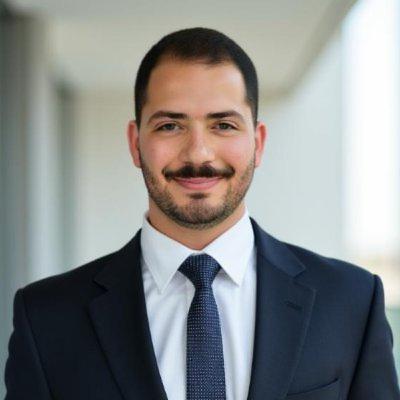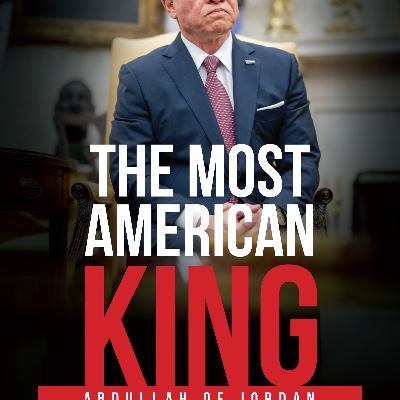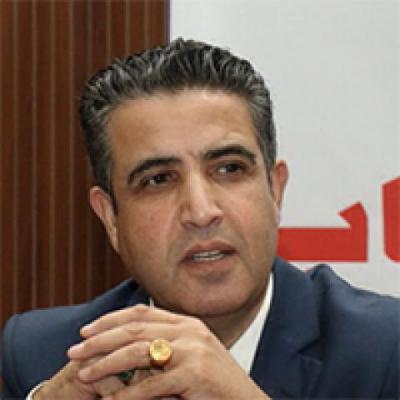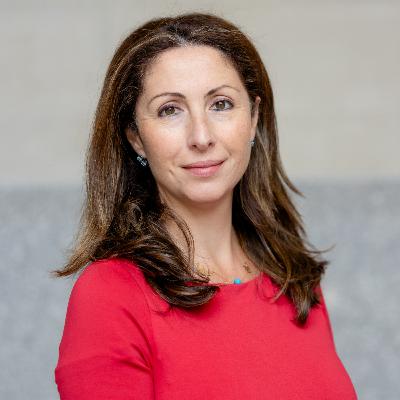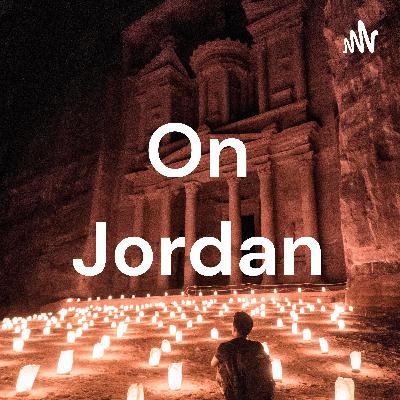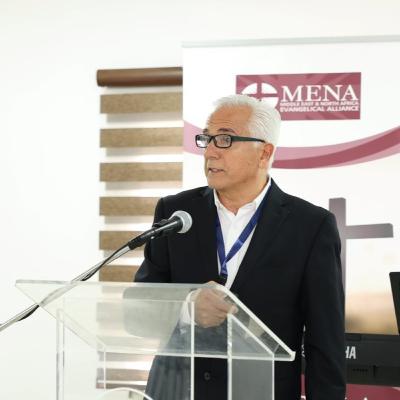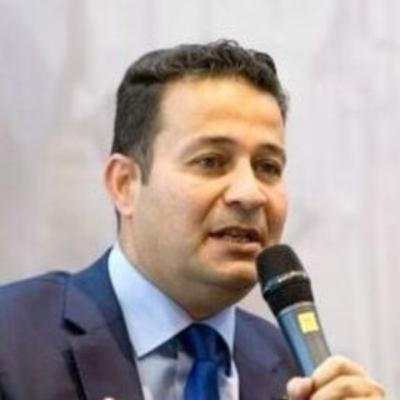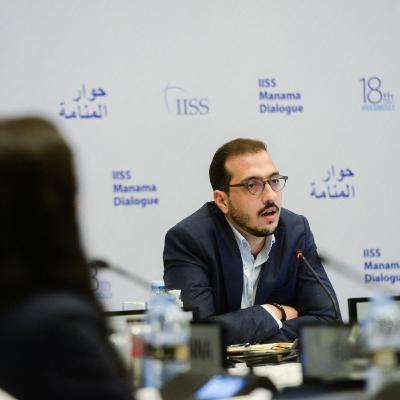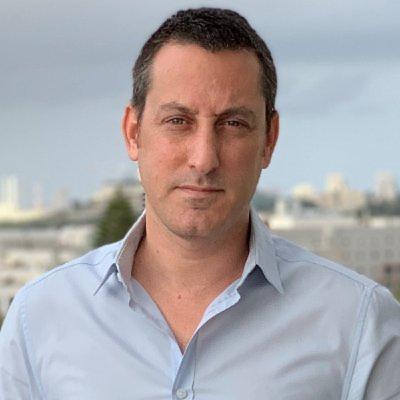Discover On Jordan
On Jordan

On Jordan
Author: Aaron Magid
Subscribed: 18Played: 197Subscribe
Share
© Aaron Magid
Description
A podcast on the latest developments in Jordanian politics featuring interviews with experts from across the Hashemite Kingdom. The podcast is hosted by Aaron Magid, a former Amman-based journalist.
Guests on the podcast have included former Royal Court Chief Jawad Anani, journalist Daoud Kuttab, Professor Hassan Barari, Canadian Ambassador to Amman Donica Pottie, and Jordanian Minister Nayef al-Fayez.
Guests on the podcast have included former Royal Court Chief Jawad Anani, journalist Daoud Kuttab, Professor Hassan Barari, Canadian Ambassador to Amman Donica Pottie, and Jordanian Minister Nayef al-Fayez.
43 Episodes
Reverse
Analyst Abdullah Hayek joins the podcast to discuss the motivations for the Jordanian government's crackdown against the Muslim Brotherhood. Hayek discusses whether the Islamic Action Front will be allowed to run in future elections and whether foreign nations influenced Amman in its ban. Finally, Hayek addresses how the Jordanian public perceived the restrictions against the Muslim Brotherhood.
Aaron Magid discusses his new book titled "The Most American King: Abdullah of Jordan" in a special episode. Danny Stoker, a Professor of Middle East History at Brigham Young University, joins the podcast to ask Aaron questions about the King Abdullah biography. Aaron discusses why the key themes of the book along with the meaning behind the book's title. The book can be purchased on Amazon: https://www.amazon.com/Most-American-King-Abdullah-Jordan/dp/1599427788
Dr. Saud al-Sharafat, a former brigadier general in the Jordan General Intelligence (GID), joins the podcast to discuss his 29-year career in the agency. Sharafat, who also serves as the chairman of the Shorufat Center for Globalization and Terrorism Studies, views the GID's relationship with the CIA. He details which country is the GID's top adversary and highlights a misconception some Jordanians have about the GID. Finally, Sharafat responds to reports of GID intervention in domestic Jordanian politics.
Merissa Khurma, the Wilson Center's Middle East Program Director, joins the podcast to discuss how the Jordanian government reacted to the overthrow of Syrian President Bashar Assad. Khurma, a former office director for Prince Ali, analyzes Jordan's relationship with the new Syrian administration. She details how the Jordanian public has responded to the overthrow of Assad's regime. Finally, Khurma addresses the Jordanian government's campaign to normalize ties with Assad in the previous few years.
Professor Hasan Al-Momani, Dean of the Prince Al-Hussein Bin Abdullah II School of Political Science and International Studies at the University of Jordan, joins the podcast to discuss Jordan's Air Force downing Iranian drones in April. Dr. Al-Momani explains how the Jordanian public responded to the incident and analyzes the Hashemite Kingdom's summoning of an Iranian diplomat. Finally, he examines the statement by Kataib Hezbollah— an Iran-backed militia— pledging to send weapons to 12,000 fighters inside Jordan.
Former Jordanian minister Amer Hadidi joins the podcast to discuss Vice President Kamala Harris and President Donald Trump's ties with Jordan. Hadidi, who also served as the CEO of Royal Jordanian Airlines, views the attitudes of the Jordanian public toward the US race. He addresses whether the US election will bring tangible change in the US-Jordanian relationship and examines if Amman-Washington ties have been stronger with Democratic or Republican presidents.
Daoud Kuttab, director general of the Amman-based Balad Radio discusses the new election law for the September 10 parliamentary race. Kuttab, a veteran Al-Monitor columnist, explains which political parties are expected to do well in the race. He details the key domestic policy issues being raised in the campaign along with how the Gaza war will impact the elections. Finally, Kuttab addresses expected voter turnout during the upcoming election.
Senior Human Rights Watch researcher Hiba Zayadin joins the podcast to discuss the mistreatment of children born to a Jordanian mother and a foreign father. Zayadin explains the reasons for the discrimination, including how it relates to the Palestinian question. She notes that these children are denied citizenship despite being born in the Hashemite Kingdom to a Jordanian parent and details how it impacts their employment opportunities. Finally, Zayadin addresses how Queen Rania attempted unsuccessfully to change this law some 20 years ago.
Saad Hattar, head of the Roya News Media Group based in Amman, joins the podcast to discuss Jordan's reaction to Iraq's 1990 conquest of Kuwait, Hattar, who previously co-founded the Jordanian newspaper Al-Ghad's editorial division, explains why Saddam Hussein and King Hussein formed such close ties in the 1980s. The analyst discusses Jordanian public opinion during the war and detailed how King Hussein's stance led to tensions with the United States. Finally, Hattar examined how Jordan shifted its policy toward the Iraqi president during the final years of King Hussein's rule.
Charles Lister, director of the Syria program at the Middle East Institute in Washington, joins the podcast to discuss Jordanian airstrikes in Syria during the past two months. Lister addresses whether this bombing campaign has been effective against the drug smugglers and notes civilian casualties. He also examines how the Syrian government has handled smuggling across its border into Jordan. Finally, Lister views whether the January killing of three US soldiers in Jordan will be a regular occurrence similar to the attacks US troops in Iraq and Syria face from Iran-backed militias.
Former Jordanian minister Marwan Juma joins the podcast to discuss how the Israel-Hamas war has affected the Hashemite Kingdom. Juma views the Jordanian government's influence on the Gaza conflict since October 7th. He discusses the government's attitude toward strikes and boycotts inside Jordan along with the level of public support for Hamas. Finally, given the many protests outside of the US Embassy in Amman, Juma analyzes whether the outrage against the Biden administration for supporting Israel during the Gaza war will impact the overall US-Jordanian relationship.
Rev. David Rihani, head of the Assemblies of God Church in Jordan, joins the podcast to discuss the Christian community in the Hashemite Kingdom. Rev. Rihani discusses government treatment of Christians and views how the community has changed compared to 50 years ago. He also details his own upbringing in the Church growing up in the Jordanian city of Salt.
Former Jordanian minister Mohammad Abu-Rumman joins the podcast to discuss the popularity of Hamas among Jordanian public opinion. Dr. Abu-Rumman, a political science professor at the University of Jordan, also details the Jordanian government's current attitude toward the Palestinian militant group. He explains why King Abdullah expelled the Hamas leadership from Jordan in 1999 during his first year on the throne. Dr. Abu-Rumman also views Jordan's response to the victory of Hamas in the 2006 Palestinian parliamentary election and the accusation that year Hamas smuggled weapons from Syria into the Hashemite Kingdom.
Oraib Rantawi, director of the Amman-based Al-Quds Center for Political Studies, joins the podcast to discuss the improved ties between Jordan and Syria. Rantawi views Amman's motivation for the gestures toward the Assad regime and explains how the US critique of normalization with Syria impacts King Abdullah's policy. He also analyzes the May 2023 Jordanian airstrike in Syria against drug smugglers. Finally, Rantawi addresses whether the numerous Syrian refugees living in Jordan will soon return to their homes across the border.
Jordanian queer and feminist activist Hasan Kilani joins the podcast to discuss the LGBTQ community in the Hashemite Kingdom. Kilani details the challenges facing the community while also noting how the situation in Jordan has improved in recent years. Kilani addresses whether it is beneficial to the LGBT community in Jordan for the US Embassy in Amman to publicly promote queer events. Finally, Kilani describes the role of class among Jordanian LGBT individuals.
Dr. Yezid Sayigh, senior fellow at the Carnegie Middle East Center, joins the podcast to discuss Jordan's 1970 civil war. He examines the origin of the crisis and discusses how much support King Hussein had among Jordanians for the crackdown against Palestinian militants. Dr. Sayigh, author of the award winning book: "Armed Struggle and the Search for State: The Palestinian National Movement, 1949-1993," explains why Syria invaded northern Jordan during the conflict. He views the US role in the affair and notes the lessons King Hussein learned from this uprising.
Jordanian political economist Laith Al-Ajlouni joins the podcast to discuss the Hashemite Kingdom's ties with the International Monetary Fund. He addresses the IMF's priorities in Jordan along with the reasons pushing Amman to first work with the Washington DC-based organization in 1989. Al-Ajlouni also explains why some Jordanians cited the IMF as one of their grievances during the Arab Spring protests. Finally, the Amman-based analyst notes whether the Jordanian government will soon wean itself off of the IMF after working with the organization for nearly 30 years.
Daoud Kuttab, Director General of the Amman-based Balad Radio, joins the podcast to discuss the December 2022 trucker demonstrations. Kuttab explains what sparked the protests and views the government's response to the discontent. He notes the role of Tik-Tok during the unrest and provides more information about the killing of the four Jordanian officers. Finally, Kuttab views whether these protests will bring strategic change to the Hashemite Kingdom.
Barak Ravid, contributing correspondent for Axios, joins the podcast to discuss how Benjamin Netanyahu's expected return to power will change Jordanian-Israeli relations. Ravid explains the significance behind King Abdullah's November 14th reported call with Netanyahu and details the security ties between the two neighboring countries amid political tensions. Finally, Ravid addresses a Washington Post article claiming that Netanyahu was involved in the 2021 Prince Hamzah sedition affair against King Abdullah.
Adam Coogle, deputy Middle East director at Human Rights Watch, joins the podcast about HRW's September report on the difficulties facing Jordanian civil society. Coogle details how the civic space in the Hashemite Kingdom has shrunk in recent years and explains if the New York-based organization was calling for the United States to cut aid to Jordan. He discusses why the Jordanian government rejected a local NGO's request to receive a German grant for a recycling awareness program. Finally, Coogle addresses which topics are considered most sensitive for Jordanian civil society.


